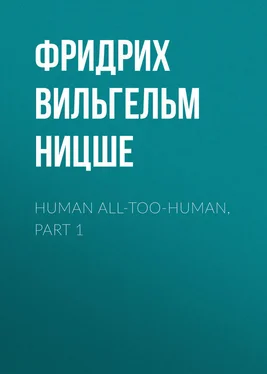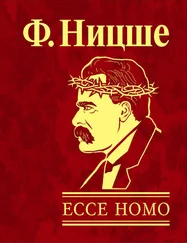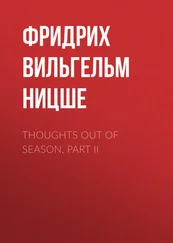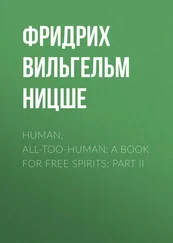Фридрих Ницше - Human All-Too-Human, Part 1
Здесь есть возможность читать онлайн «Фридрих Ницше - Human All-Too-Human, Part 1» — ознакомительный отрывок электронной книги совершенно бесплатно, а после прочтения отрывка купить полную версию. В некоторых случаях можно слушать аудио, скачать через торрент в формате fb2 и присутствует краткое содержание. Жанр: Философия, literature_19, foreign_antique, foreign_prose, на английском языке. Описание произведения, (предисловие) а так же отзывы посетителей доступны на портале библиотеки ЛибКат.
- Название:Human All-Too-Human, Part 1
- Автор:
- Жанр:
- Год:неизвестен
- ISBN:нет данных
- Рейтинг книги:4 / 5. Голосов: 1
-
Избранное:Добавить в избранное
- Отзывы:
-
Ваша оценка:
- 80
- 1
- 2
- 3
- 4
- 5
Human All-Too-Human, Part 1: краткое содержание, описание и аннотация
Предлагаем к чтению аннотацию, описание, краткое содержание или предисловие (зависит от того, что написал сам автор книги «Human All-Too-Human, Part 1»). Если вы не нашли необходимую информацию о книге — напишите в комментариях, мы постараемся отыскать её.
Human All-Too-Human, Part 1 — читать онлайн ознакомительный отрывок
Ниже представлен текст книги, разбитый по страницам. Система сохранения места последней прочитанной страницы, позволяет с удобством читать онлайн бесплатно книгу «Human All-Too-Human, Part 1», без необходимости каждый раз заново искать на чём Вы остановились. Поставьте закладку, и сможете в любой момент перейти на страницу, на которой закончили чтение.
Интервал:
Закладка:
Inherited Faults of Philosophers. – All philosophers have the common fault that they start from man in his present state and hope to attain their end by an analysis of him. Unconsciously they look upon "man" as an cetema Veritas, as a thing unchangeable in all commotion, as a sure standard of things. But everything that the philosopher says about man is really nothing more than testimony about the man of a very limited space of time. A lack of the historical sense is the hereditary fault of all philosophers; many, indeed, unconsciously mistake the very latest variety of man, such as has arisen under the influence of certain religions, certain political events, for the permanent form from which one must set out. They will not learn that man has developed, that his faculty of knowledge has developed also; whilst for some of them the entire world is spun out of this faculty of knowledge. Now everything essential in human development happened in pre-historic times, long before those four thousand years which we know something of; man may not have changed much during this time. But the philosopher sees "instincts" in the present man and takes it for granted that this is one of the unalterable facts of mankind, and, consequently, can furnish a key to the understanding of the world; the entire teleology is so constructed that man of the last four thousand years is spoken of as an eternal being, towards which all things in the world have from the beginning a natural direction. But everything has evolved; there are no eternal facts, as there are likewise no absolute truths. Therefore, historical philosophising is henceforth necessary, and with it the virtue of diffidence.
Appreciation of Unpretentious Truths. – It is a mark of a higher culture to value the little unpretentious truths, which have been found by means of strict method, more highly than the joy-diffusing and dazzling errors which spring from metaphysical and artistic times and peoples. First of all one has scorn on the lips for the former, as if here nothing could have equal privileges with anything else, so unassuming, simple, bashful, apparently discouraging are they, so beautiful, stately, intoxicating, perhaps even animating, are the others. But the hardly attained, the certain, the lasting, and therefore of great consequence for all wider knowledge, is still the higher; to keep one's self to that is manly and shows bravery, simplicity, and forbearance. Gradually not only single individuals but the whole of mankind will be raised to this manliness, when it has at last accustomed itself to the higher appreciation of durable, lasting knowledge, and has lost all belief in inspiration and the miraculous communication of truths. Respecters of forms, certainly, with their standard of the beautiful and noble, will first of all have good reasons for mockery, as soon as the appreciation of unpretentious truths, and the scientific spirit, begin to obtain the mastery; but only because their eye has either not yet recognised the charm of the simplest form, or because men educated in that spirit are not yet completely and inwardly saturated by it, so that they still thoughtlessly imitate old forms (and badly enough, as one does who no longer cares much about the matter). Formerly the spirit was not occupied with strict thought, its earnestness then lay in the spinning out of symbols and forms. This is changed; that earnestness in the symbolical has become the mark of a lower culture. As our arts themselves grow evermore intellectual, our senses more spiritual, and as, for instance, people now judge concerning what sounds well to the senses quite differently from how they did a hundred years ago, so the forms of our life grow ever more spiritual, to the eye of older ages perhaps uglier, but only because it is incapable of perceiving how the kingdom of the inward, spiritual beauty constantly grows deeper and wider, and to what extent the inner intellectual look may be of more importance to us all than the most beautiful bodily frame and the noblest architectural structure.
Astrology and the Like. – It is probable that the objects of religious, moral, æsthetic and logical sentiment likewise belong only to the surface of things, while man willingly believes that here, at least, he has touched the heart of the world; he deceives himself, because those things enrapture him so profoundly, and make him so profoundly unhappy, and he therefore shows the same pride here as in astrology. For astrology believes that the firmament moves round the destiny of man; the moral man, however, takes it for granted that what he has essentially at heart must also be the essence and heart of things.
Misunderstanding of Dreams. – In the ages of a rude and primitive civilisation man believed that in dreams he became acquainted with a second actual world ; herein lies the origin of all metaphysics. Without dreams there could have been found no reason for a division of the world. The distinction, too, between soul and body is connected with the most ancient comprehension of dreams, also the supposition of an imaginary soul-body, therefore the origin of all belief in spirits, and probably also the belief in gods. "The dead continues to live, for he appears to the living in a dream": thus men reasoned of old for thousands and thousands of years.
The Scientific Spirit Partially But Not Wholly Powerful. – The smallest subdivisions of science taken separately are dealt with purely in relation to themselves, – the general, great sciences, on the contrary, regarded as a whole, call up the question – certainly a very non-objective one – "Wherefore? To what end?" It is this utilitarian consideration which causes them to be dealt with less impersonally when taken as a whole than when considered in their various parts. In philosophy, above all, as the apex of the entire, pyramid of science, the question as to the utility of knowledge is involuntarily brought forward, and every philosophy has the unconscious intention of ascribing to it the greatest usefulness. For this reason there is so much high-flying metaphysics in all philosophies and such a shyness of the apparently unimportant solutions of physics; for the importance of knowledge for life must appear as great as possible. Here is the antagonism between the separate provinces of science and philosophy. The latter desires, what art does, to give the greatest possible depth and meaning to life and actions; in the former one seeks knowledge and nothing further, whatever may emerge thereby. So far there has been no philosopher in whose hands philosophy has not grown into an apology for knowledge; on this point, at least, every one is an optimist, that the greatest usefulness must be ascribed to knowledge. They are all tyrannised over by logic, and this is optimism – in its essence.
The Kill-joy in Science. – Philosophy separated from science when it asked the question, "Which is the knowledge of the world and of life which enables man to live most happily?" This happened in the Socratic schools; the veins of scientific investigation were bound up by the point of view of happiness, – and are so still.
Pneumatic Explanation of Nature. – Metaphysics explains the writing of Nature, so to speak, pneumatically, as the Church and her learned men formerly did with the Bible. A great deal of understanding is required to apply to Nature the same method of strict interpretation as the philologists have now established for all books with the intention of clearly understanding what the text means, but not suspecting a double sense or even taking it for granted. Just, however, as with regard to books, the bad art of interpretation is by no means overcome, and in the most cultivated society one still constantly comes across the remains of allegorical and mystic interpretation, so it is also with regard to Nature, indeed it is even much worse.
Читать дальшеИнтервал:
Закладка:
Похожие книги на «Human All-Too-Human, Part 1»
Представляем Вашему вниманию похожие книги на «Human All-Too-Human, Part 1» списком для выбора. Мы отобрали схожую по названию и смыслу литературу в надежде предоставить читателям больше вариантов отыскать новые, интересные, ещё непрочитанные произведения.
Обсуждение, отзывы о книге «Human All-Too-Human, Part 1» и просто собственные мнения читателей. Оставьте ваши комментарии, напишите, что Вы думаете о произведении, его смысле или главных героях. Укажите что конкретно понравилось, а что нет, и почему Вы так считаете.












